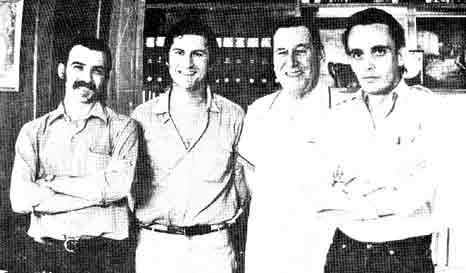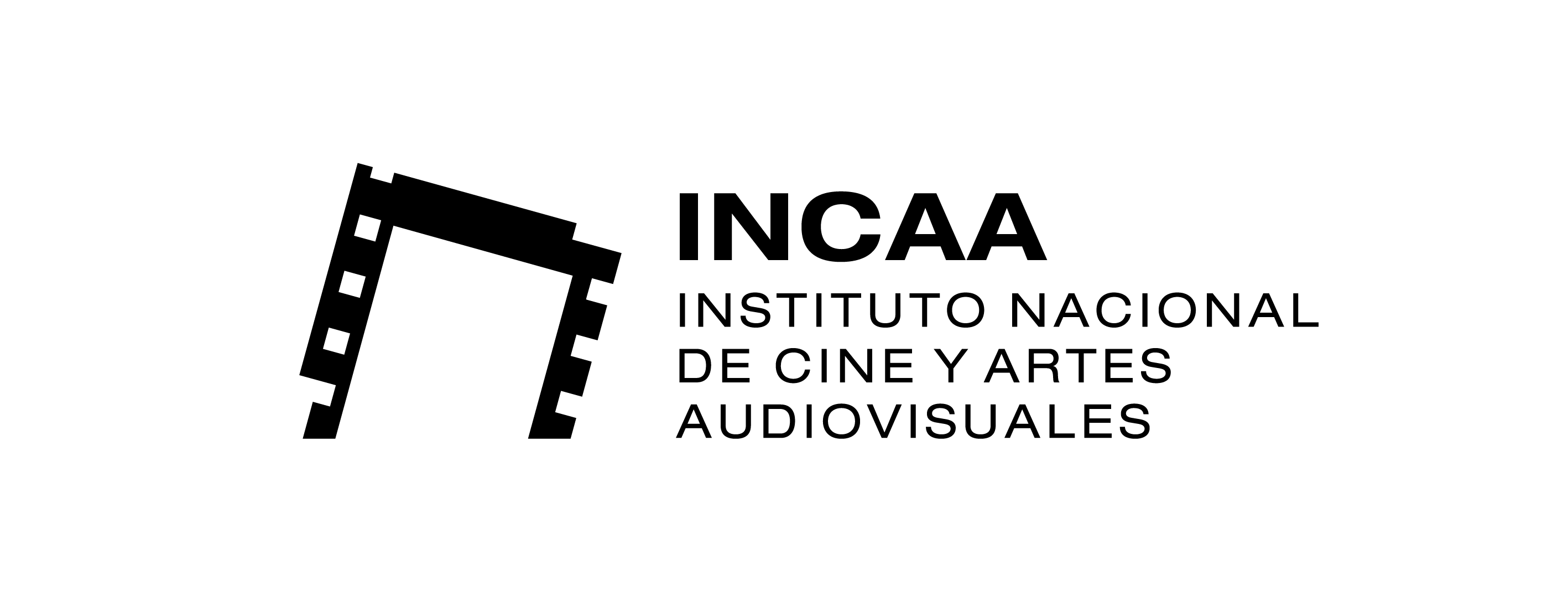|
Octavio Getino
Octavio Getino (August 6, 1935 in León, Spain – October 1, 2012) was an Argentine film director and writer who is best known for co-founding, along with Fernando Solanas, the '' Grupo Cine Liberación'' and the school of Third Cinema. Getino was born in Spain and migrated to Argentina in the 1950s. In 1964 he was awarded the ''Premio Casa de las Américas'' for his short-stories book ''Chulleca''. Getino also left a number of essays on cinema and sociology. From 1989 to 1990, Getino led the Instituto Nacional de Cinematografía (INCAA). He died of cancer at 77, on October 1, 2012. Filmography *''The Hour of the Furnaces'' (''Hora de los hornos'', 1968) *''Argentina, mayo de 1969: Los caminos de la liberación'' (1969) *''Perón: La revolución justicialista'' (1971) *''Perón: Actualización política y doctrinaria para la toma del poder'' (1971) *'' El Familiar'' (1975) Works as writer * ''Chulleca'' (short stories, Casa de las Américas, La Habana, 1963) * ''A diez año ... [...More Info...] [...Related Items...] OR: [Wikipedia] [Google] [Baidu] |
León, Spain
León (; ) is a city and Municipalities of Spain, municipality of Spain, capital of the province of León, part of the autonomous community of Castile and León, in the northwest of the Iberian Peninsula. It has a population of 124,303 (2019), by far the largest municipality in the province. The population of the metropolitan area, including the neighbouring San Andrés del Rabanedo and other smaller municipalities, accounts for around 200,000 inhabitants. Founded as the military encampment of the ''Legio VI Victrix'' around 29 BC, its standing as an encampment city was consolidated with the definitive settlement of the ''Legio VII Gemina'' from 74 AD. Following its partial depopulation due to the Umayyad invasion of Hispania, Umayyad conquest of the peninsula, 910 saw the beginning of one its most prominent historical periods, when it became the capital of the Kingdom of León, which took active part in the Reconquista against the Moors, and came to be one of the fundamental ki ... [...More Info...] [...Related Items...] OR: [Wikipedia] [Google] [Baidu] |
Spain
, image_flag = Bandera de España.svg , image_coat = Escudo de España (mazonado).svg , national_motto = '' Plus ultra'' ( Latin)(English: "Further Beyond") , national_anthem = (English: "Royal March") , image_map = , map_caption = , image_map2 = , capital = Madrid , coordinates = , largest_city = Madrid , languages_type = Official language , languages = Spanish , ethnic_groups = , ethnic_groups_year = , ethnic_groups_ref = , religion = , religion_ref = , religion_year = 2020 , demonym = , government_type = Unitary parliamentary constitutional monarchy , leader_title1 = Monarch , leader_name1 = Felipe VI , leader_title2 = Prime Minister , leader_name2 = Pedro Sánchez , legislature = ... [...More Info...] [...Related Items...] OR: [Wikipedia] [Google] [Baidu] |
Argentina
Argentina (), officially the Argentine Republic ( es, link=no, República Argentina), is a country in the southern half of South America. Argentina covers an area of , making it the second-largest country in South America after Brazil, the fourth-largest country in the Americas, and the eighth-largest country in the world. It shares the bulk of the Southern Cone with Chile to the west, and is also bordered by Bolivia and Paraguay to the north, Brazil to the northeast, Uruguay and the South Atlantic Ocean to the east, and the Drake Passage to the south. Argentina is a federal state subdivided into twenty-three provinces, and one autonomous city, which is the federal capital and largest city of the nation, Buenos Aires. The provinces and the capital have their own constitutions, but exist under a federal system. Argentina claims sovereignty over the Falkland Islands, South Georgia and the South Sandwich Islands, and a part of Antarctica. The earliest recorded ... [...More Info...] [...Related Items...] OR: [Wikipedia] [Google] [Baidu] |
Fernando Solanas
Fernando Ezequiel "Pino" Solanas (16 February 1936 – 6 November 2020) was an Argentine film director, screenwriter, and politician. His films include; '' La hora de los hornos (The Hour of the Furnaces)'' (1968), '' Tangos: el exilio de Gardel'' (1985), '' Sur'' (1988), '' El viaje'' (1992), ''La nube'' (1998) and '' Memoria del saqueo'' (2004), among many others. He was National Senator representing the Autonomous City of Buenos Aires for six years, from 2013 to 2019. Solanas studied theatre, music, and law. In 1962, he directed his first short feature ''Seguir andando'' and in 1968 he covertly produced and directed his first long feature film '' La Hora de los Hornos'', a documentary on neo-colonialism and violence in Latin America. The film won several international awards and was screened around the world. Solanas won the Grand Jury Prize and the Critics Award at the Venice Film Festival and the ''Prix de la mise en scène'' at the Cannes Film Festival. In 1999 he was the Pr ... [...More Info...] [...Related Items...] OR: [Wikipedia] [Google] [Baidu] |
Grupo Cine Liberación
The ''Grupo Cine Liberación'' ("The Liberation Film Group") was an Argentine film movement that took place during the end of the 1960s. It was founded by Fernando Solanas, Octavio Getino and Gerardo Vallejo. The idea of the group was to give rise to historical, testimonial and film-act cinema, to contribute to the debate and offer an open space for dialogue and freedom of expression that was illegal at that time. With strong anti-imperialist ideas, he harshly criticized Peronism and neocolonialism. In the subsequent years other films directors ('' grupo Realizadores de Mayo'', Enrique and Nemesio Juárez, Pablo Szir, etc.) revolved around the active core of the ''Cine Liberación'' group. , '' [...More Info...] [...Related Items...] OR: [Wikipedia] [Google] [Baidu] |
Third Cinema
Third Cinema ( es, Tercer Cine) is a Latin American film movement that started in the 1960s–70s which decries neocolonialism, the capitalist system, and the Hollywood model of cinema as mere entertainment to make money. The term was coined in the manifesto ''Hacia un tercer cine'' (''Toward a Third Cinema''), written in the late 1960s by Argentine filmmakers Fernando Solanas and Octavio Getino, members of the '' Grupo Cine Liberación'' and published in 1969 in the cinema journal '' Tricontinental'' by the OSPAAAL (Organization of Solidarity with the People of Asia, Africa and Latin America). Definition Solanas and Getino's manifesto considers 'First Cinema' to be the Hollywood production model that idealizes bourgeois values to a passive audience through escapist spectacle and individual characters. 'Second Cinema' is the European art film, which rejects Hollywood conventions but is centred on the individual expression of the auteur director. Third Cinema is meant to be no ... [...More Info...] [...Related Items...] OR: [Wikipedia] [Google] [Baidu] |
INCAA
The National Institute of Cinema and Audiovisual Arts ( es, Instituto Nacional de Cine y Artes Audiovisuales, INCAA; also referred to as the Argentine National Film Board) is an agency of the Government of Argentina. It promotes the Argentine film industry by funding qualified Argentine film production companies and supporting new filmmakers. The Institute was established on 14 May 1968 by law nº 17.741. The INCAA also organizes the , Ventana Sur film market, and has its own film school called ENERC.
|
The Hour Of The Furnaces
''The Hour of the Furnaces'' ( es, La hora de los hornos) is a 1968 Argentine film directed by Octavio Getino and Fernando Solanas. 'The paradigm of revolutionary activist cinema', it addresses the politics of the 'Third worldist' films and Latin-American manifesto of the late 1960s. It is a key part of the ' Third Cinema', a movement that emerged in Latin America around the same time as the film's release. The work is a four-hour trilogy, divided into chapters and united by the theme of dependency and liberation. The first part - "Neo-Colonialism and Violence" - is conceived for diffusion in all types of circuits, and is the one presented at Cannes Classics. In a survey of the 100 greatest films of Argentine cinema carried out by the Museo del Cine Pablo Ducrós Hicken in 2000, the film reached the 22nd position. In a new version of the survey organized in 2022 by the specialized magazines ''La vida útil'', ''Taipei'' and ''La tierra quema'', presented at the Mar del Plata ... [...More Info...] [...Related Items...] OR: [Wikipedia] [Google] [Baidu] |
El Familiar
''El Familiar'' is a 1975 Argentine film. Cast * Martín Adjemián Martín Adjemián (December 12, 1932 – January 3, 2006) was an Argentine film and television actor of Armenian descent. He worked in the cinema of Argentina. External links * 1975 films Argentine drama films[...More Info...] [...Related Items...] OR: [Wikipedia] [Google] [Baidu] |
Cinema Of Argentina
Cinema of Argentina refers to the film industry based in Argentina. The Argentine cinema comprises the art of film and creative movies made within the nation of Argentina or by Argentine filmmakers abroad. The Argentine film industry has historically been one of the three most developed in Latin American cinema, along with those produced in Mexico and Brazil. Throughout the 20th century, film production in Argentina, supported by the State and by the work of a long list of directors and actors, became one of the major film industries in the Spanish-speaking world. Argentina has won eighteen Goya Awards for Best Spanish Language Foreign Film, which makes it the most awarded country. It is also the first Latin American country that has won Academy Awards, in recognition of the films '' The Official Story'' (1985) and '' The Secret in Their Eyes'' (2009). History The beginning In 1896, French photographer Eugene Py was working for the Belgian Henri Lepage and the Austrian Ma ... [...More Info...] [...Related Items...] OR: [Wikipedia] [Google] [Baidu] |
1935 Births
Events January * January 7 – Italian premier Benito Mussolini and French Foreign Minister Pierre Laval conclude Franco-Italian Agreement of 1935, an agreement, in which each power agrees not to oppose the other's colonial claims. * January 12 – Amelia Earhart becomes the first person to successfully complete a solo flight from Hawaii to California, a distance of 2,408 miles. * January 13 – A plebiscite in the Saar (League of Nations), Territory of the Saar Basin shows that 90.3% of those voting wish to join Germany. * January 24 – The first canned beer is sold in Richmond, Virginia, United States, by Gottfried Krueger Brewing Company. February * February 6 – Parker Brothers begins selling the board game Monopoly (game), Monopoly in the United States. * February 13 – Richard Hauptmann is convicted and sentenced to death for the kidnapping and murder of Charles Lindbergh Jr. in the United States. * February 15 – The discovery and clinical development of ... [...More Info...] [...Related Items...] OR: [Wikipedia] [Google] [Baidu] |
2012 Deaths
This is a list of deaths of notable people, organised by year. New deaths articles are added to their respective month (e.g., Deaths in ) and then linked here. 2022 2021 2020 2019 2018 2017 2016 2015 2014 2013 2012 2011 2010 2009 2008 2007 2006 2005 2004 2003 2002 2001 2000 1999 1998 1997 1996 1995 1994 1993 1992 1991 1990 1989 1988 1987 See also * Lists of deaths by day * Deaths by year {{DEFAULTSORT:deaths by year ... [...More Info...] [...Related Items...] OR: [Wikipedia] [Google] [Baidu] |




_-_Movie_by_Enrique_García_Velloso.jpg)
